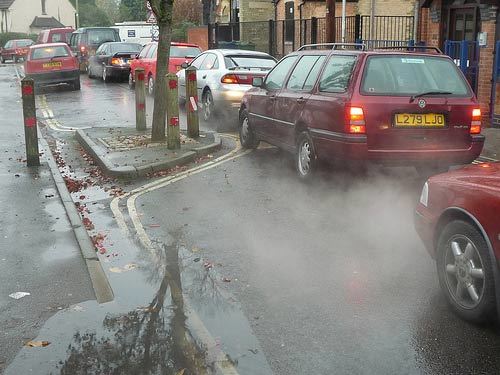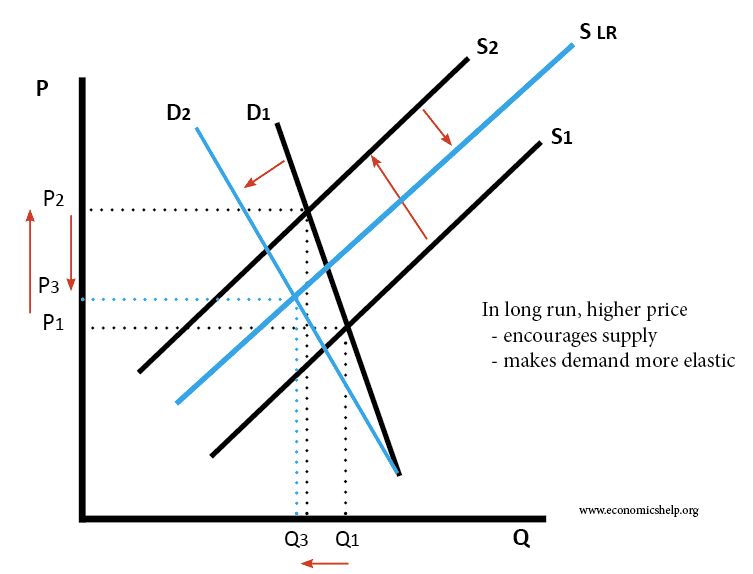There are certain problems you can deal with after the event, there are other problems which need foresight, planning and unpopular decision made before the problem becomes critical.
- Free market economics tends to respond to events – you can say that they deal with problems after they have occurred.
- Economists who favour government intervention argue it is a mistake to always wait for the market to respond to change and there are some problems which need to be dealt with before they become very serious. After the event, it might be too late
Food shortages
If there is a bad harvest then a country may experience a shortage of a particular food type. However, it is difficult to deal with a food shortage after it has occurred. If it is not possible to import food from abroad the domestic producers may take a year to plant enough seeds and grow sufficient food.
If food shortages are a potential problem – then the best response is to plan for this crisis before it occurs. For example, the government or groups of food producers could create a buffer stock – a store of food.
There is a story in the Bible, where during the seven years of plenty, Joseph stored grain in vast amounts. Then during the seven years of famine, the Egyptians were able to use the food which had been previously stored. Joseph’s actions were an example of dealing with a problem before it occurred. After the fact, it would have been too late.
Global Warming
Most reports suggest that when global warming is causing serious problems, it will be too late to do anything about it. The problem is to deal with the issue requires policies not popular at the moment, If we faced a real crisis of collapsing environment. After the world has reached a certain temperature, it may be too late to reduce it because the warming temperatures cause knock-on effects such as melting ice water releasing more carbon dioxide into the atmosphere.
Pollution

Some pollution can be dealt with after it becomes apparent. For example, in the 1950s, the UK had very poor air quality – e.g. the famous London smogs where the air pollution reduced visibility. The smogs caused the government to act and ban the burning of coal in city centres. Legislation was able to clean up the visible smog and this solved the issue.
However, some pollutants are less visible and less easily removed. For example, when DDT was found to be dangerous it was banned, however, the mercury in DDT is not easily removed because it enters the food chain and remains in the environment after the pesticide has been banned.
Shortage of natural resources

With some natural resources, as the good becomes scarce, the market mechanism will provide a gradual incentive to reduce consumption and switch to an alternative. In this case, we don’t need to deal with a problem before, there will be a natural evolution of the problem. For example, as oil becomes a scarce resource, it will make it more profitable to switch to electric-powered vehicles which run on renewable energy. Also, the fall in supply may encourage countries to try and discover more supply.
However, other types of natural resources may not have a close substitute. For example, clean drinking water. In this case, if clean drinking water becomes polluted or runs scarce then it may not be possible to deal with this issue after the event. If there is a draught, it is hard to deal with
Related
